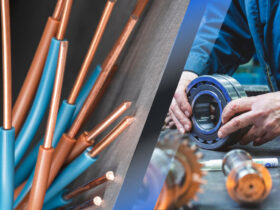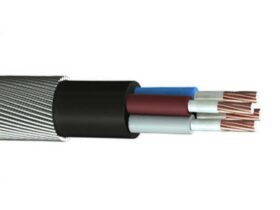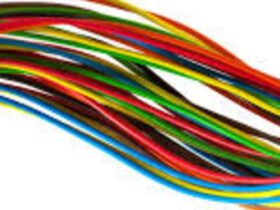Multicore control cables play a crucial role in industrial automation systems. They are designed to facilitate the transmission of signals and power between different components and devices within the automation setup. Here are some reasons why multicore control cables are important in industrial automation:
- Signal Transmission: Multicore control cables provide a reliable means of transmitting various types of signals, such as analog, digital, and serial communication signals. These cables ensure the accurate and uninterrupted flow of information between sensors, actuators, controllers, and other automation devices. Signal integrity is essential for the proper functioning of the automation system, and multicore control cables help maintain the quality of signals throughout the network.
- Power Distribution: Industrial automation systems often require the distribution of power to different devices and equipment. Multicore control cables are designed to carry power along with signals, allowing for efficient power distribution within the automation network. This eliminates the need for separate power cables, reducing clutter and simplifying installation and maintenance.
- Flexibility and Versatility: Multicore control cables are available in various configurations, such as different numbers of cores and shielding options. This flexibility enables them to be tailored to the specific requirements of different automation applications. Whether it’s a simple control system or a complex network with multiple devices, multicore control cables can be customized to accommodate the specific signal and power needs of the automation setup.
- Cable Management and Space Optimization: Industrial automation environments often involve a large number of cables running throughout the facility. Using multicore control cables helps in managing and organizing these cables more efficiently. By combining multiple cores within a single cable, it reduces the overall cable count, simplifying cable routing and minimizing the space occupied by the cabling infrastructure. This can result in neater installations, reduced chances of cable damage, and easier troubleshooting.
- Noise and Interference Immunity: Industrial environments are prone to electrical noise and electromagnetic interference, which can affect the performance of sensitive automation signals. Multicore control cables are designed with shielding and insulation techniques that provide protection against noise and interference. The shielding helps to minimize the impact of external electromagnetic fields, ensuring the integrity of signals and reducing the chances of erroneous readings or control commands.
- Cost-Effectiveness: Using multicore control cables can be cost-effective compared to running individual cables for each signal or power requirement. It eliminates the need for separate cables for different purposes, reducing material costs, installation time, and maintenance efforts. Additionally, the consolidation of cables simplifies troubleshooting and repair activities, minimizing downtime and associated costs.
In summary, multicore control cables are vital components of industrial automation systems. They enable reliable signal transmission, efficient power distribution, flexibility, and space optimization while providing immunity against noise and interference. By utilizing multicore control cables, industrial automation setups can achieve improved performance, enhanced reliability, and cost-effective operation.












Leave a Reply